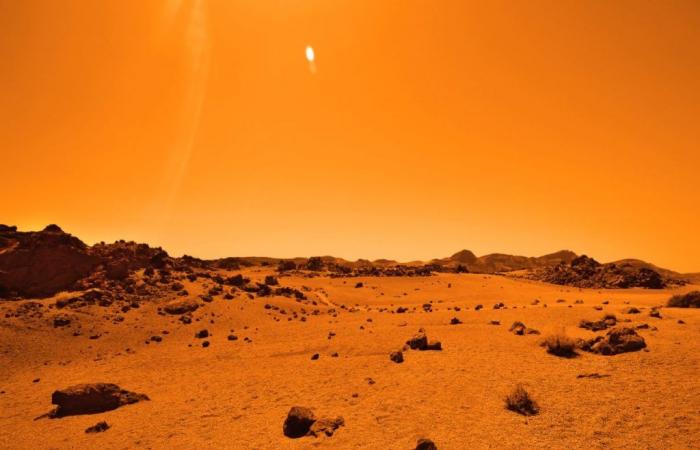Most of these samples are rock cores or regolith (broken rock and dust) which could reveal important information about the planet’s history and indicate whether microbial life was present billions of years ago. But some scientists are just as enthusiastic about studying “headspace,” that is, the air that is in the extra space around the rock material in the tubes.
“Mars air samples will tell us not only about the current climate and atmosphere, but also how they have changed over time,” said Brandi Carrier, a planetary scientist at NASA’s Jet Propulsion Laboratory in Southern California.
Scientists want to know more about the Martian atmosphere, which is mainly composed of carbon dioxide, but which may also contain traces of other gases which may have existed since the formation of the planet.
These samples will allow us to know more about the water vapor present on the Red Planet.
Among the samples that could be brought back to Earth are: a tube filled only with gas deposited on the Martian surface as part of a sample deposition.
However, most of the gas collected by the rover is in the headspace of the rock samples. These are unique because the gas will interact with the rock material inside the tubes for years before the samples can be opened and analyzed in laboratories on Earth.
The samples scientists take will give them an idea of how much water vapor is floating near the Martian surface, a factor that determines the formation of ice on this planet and the evolution of the water cycle on Mars over time.
The scientists also wish to better understand the minor gases present in the air of Mars. The most interesting, from a scientific point of view, would be the detection of noble gases, which are so unreactive that they could be present, unchanged, in the atmosphere since its formation billions of years ago.
If they are captured, these gases could reveal whether Mars originally had an atmosphere (Ancient Mars had a much thicker atmosphere than today, but scientists don’t know if it was always there or developed later). Big questions also arise about how the planet’s ancient atmosphere compares to that of early Earth.






